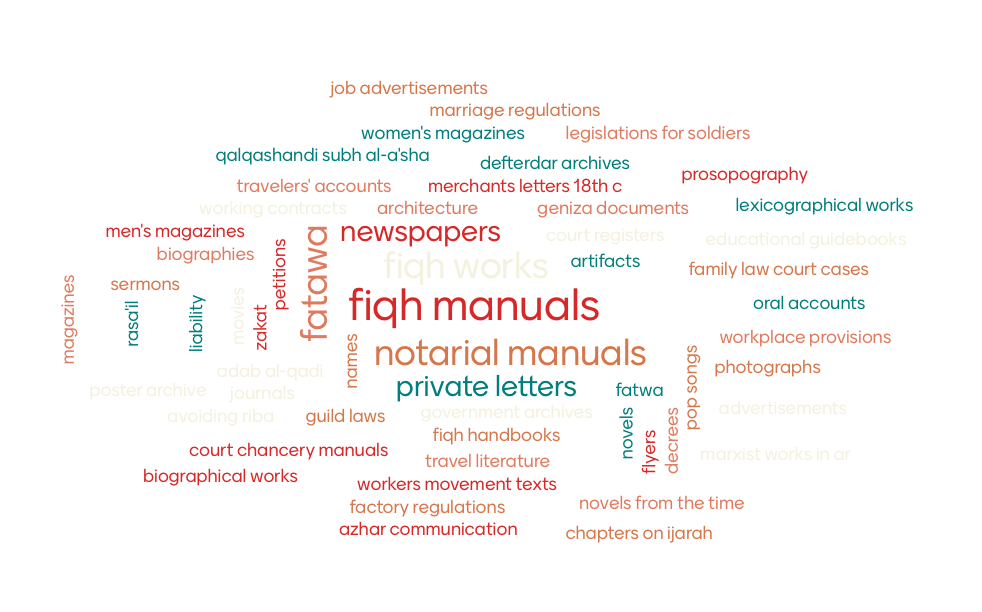About the Project
Labour is and has always been an integral part of everyday life across the world. For a long time, however, there existed a prevailing assumption that the concept of labour—as a commodity transcending all forms of economic productivity—was primarily a product of modern Europe. This perspective implied that unpaid and/or coercive forms of labour were characteristic of backward, non-Western societies.
For this reason, labour history traditionally centred on the experiences of wage labourers, focusing on the emergence of class consciousness and the struggles of industrial workers. Over the past two decades, however, research has increasingly challenged this view, revealing that even forms like “wage labour” and “contract labour” are far from possessing fixed, universal characteristics; instead, they have always been shaped by local dynamics and specific historical contexts.
Even the common distinction in English between “labour” and “work” becomes complicated when looking beyond the West. “Labour” is typically understood as an activity performed in a subordinate position in exchange for payment or other forms of remuneration. Conversely, “work” is often framed as non-remunerative and includes concepts such as care work or reproductive work. This distinction is deeply rooted in the Industrial Revolution and aims at commodifying certain activities (labelled as “labour”) while neglecting non-remunerative ones (labelled as “work”), such as care work or informal labour.
As global labour historians have demonstrated, to obtain a more nuanced understanding of labour, less Eurocentric models of historical analysis that embrace perspectives from the Global South are crucial. While recent scholarship has increasingly explored labour in South Asia, Sub-Saharan Africa, Latin America, and the Caribbean, the Middle East remains largely unaddressed, particularly for the pre-modern period.
TraIL seeks to address this gap by offering the first longue durée perspective on labour in Islamicate societies, spanning from the 10th to the 20th century.
Research Scope and Methodology
TraIL sits at the intersection of three scholarly fields: labour history, gender studies, and Islamic legal studies. Drawing on methodologies from global labour history, conceptual history, and historical semantics, the project employs textual analysis, historical discourse analysis, and digital humanities tools. These include data mining, text reuse analysis, and tagging systems to trace the evolution of labour-related terminology across the centuries. TraIL also leverages existing digital corpora, such as OpenITI, APD, and CALD, to map changes in Islamic legal thought on labour. Additionally, the TraIL team will develop a relational database—compliant with FAIR principles—to track the vocabulary of labour in historical texts systematically. This database will facilitate both diachronic and synchronic analyses, making the data accessible to future researchers and the broader academic community.
Sources
TraIL examines a broad spectrum of sources—from doctrinal fiqh texts (mutūn, furūʿ, shurūḥ) to legal materials reflecting social and legal practices, such as fatāwā (legal responsa), independent treatises, court archives, employment and tenancy contracts, notarial and ḥisba manuals. These are studied alongside chronicles, biographical dictionaries, and lexicographical works. This holistic approach treats Islamic law not as a static doctrine but as a dynamic, socially embedded system.
Main research objectives:
- Mapping Labour-Related Terms: Identify and trace labour-related terminology in Arabic juristic sources, legal documents and texts, and observe semantic shifts in different historical periods.
- Reconstructing Legal Discourses: Analyse shifts in Islamic legal thought on labour and reconstruct patterns of argument and terminology.
- Exploring Gendered Labour: Uncover women’s labour and its socio-legal implications in Islamic traditions.
- Sharing Knowledge: Produce a FAIR-compliant relational database that maps labour vocabulary and sources.

